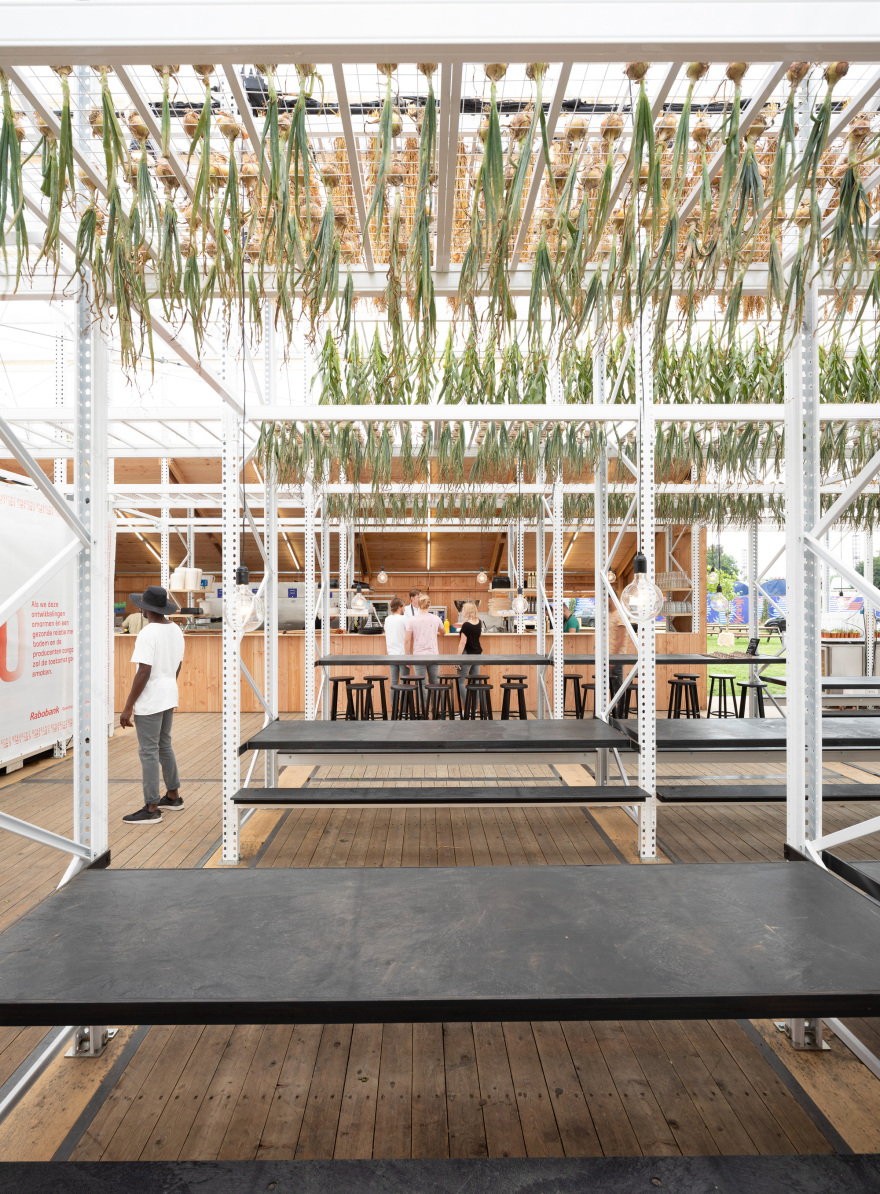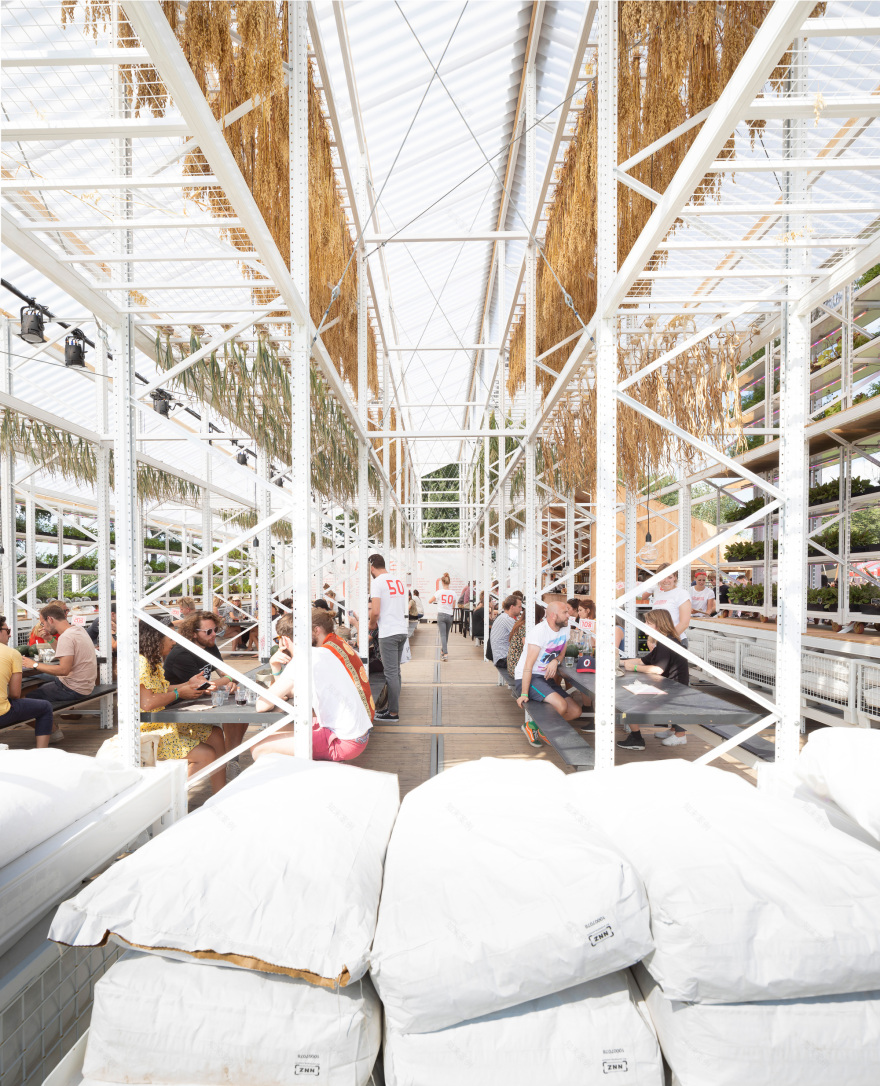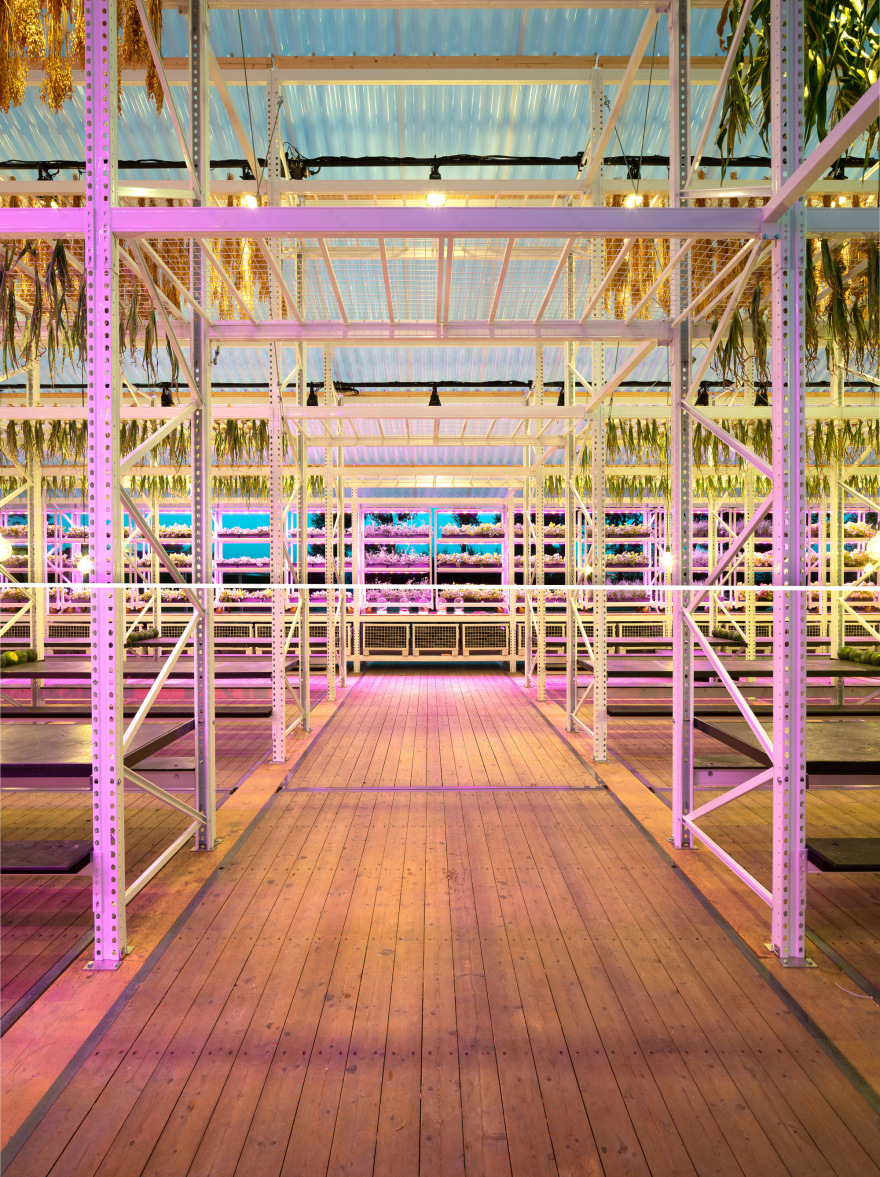查看完整案例


收藏

下载

翻译
In 2018 a new restaurant opened its doors at Lowlands Festival: Brasserie 2050. In 2050 the world needs to feed an estimated 10 billion people. To make this possible, the world’s population need to start eating in a more sustainable way. The dishes served at Brasserie 2050 prove this doesn’t mean food will be boring or tasteless in the future, on the contrary. On the menu are, among other dishes, No Waste bread made of potato peels, salad Biddinghuizen as a local bread variety on salad Niçoise and steak tartare with 50% less meat.
The pavilion housing the brasserie was conceived by the spatial designers of Overtreders W as the barn of the future. A barn is a timeless icon for farming and has proven itself over the centuries as a neutral but recognizable envelope in which evolving farming activities can take place. In the future, the barn will keep on adapting itself to new ways of breeding and harvesting.
The future of building is circular: making sure no resources are wasted. The barn of the future is made from borrowed, hired and dismountable standard building materials that will keep their value after the barn is no longer in use. The main construction consists of standard pallet racks, the tables are made from recycled plastic. A stack of vertical farming cabinets filled with herbs forms the facade of the pavilion. Above the tables onions, garlic, corn, and wheat are stored, mesh box pallets filled with bags of grain make sure the pavilion is not blown away by the wind. In this way, everything is reusable and nothing will be thrown away.
客服
消息
收藏
下载
最近

























